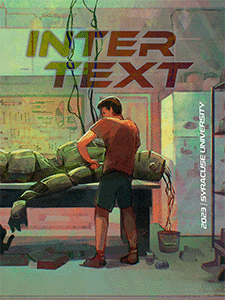
College of Arts and Sciences
Curriculum
This major is both rigorous and flexible, allowing you to pursue what you love while deepening your critical thinking, composing and creative problem-solving skills. Our classes will give you the opportunity to practice digital, argumentative, research, civic, science, professional and technical writing as well as creative nonfiction.
- Produce well-reasoned, well-evidenced arguments.
- Produce texts that exhibit an ethical stance toward topic and audience.
- Produce rhetorically astute work in multiple modalities.
- Produce texts that engage with issues of power, identity, culture and literacy.
- Produce texts that engage the historical and cultural contexts of genres and practices of writing.
- Engage in primary and secondary research.
- Professional and Technical Writing in Global Contexts
- Indigenous Writing and Rhetoric
- Studies in Creative Nonfiction
- Feminist Rhetoric(s)
- Writing, Rhetoric and the Environment
Extracurricular Opportunities
The Writing Center
The Writing Center offers one-on-one consulting services to support the success of all Syracuse University students. Each year, thousands of students from various academic and linguistic backgrounds visit the Writing Center for help with a wide range of writing projects, including academic assignments, internship applications and professional portfolios. Writing consultants will work with you at any stage of your writing process.

Writing and Rhetoric Student Organization
The Writing and Rhetoric Student Organization (WRSO) brings together undergraduate writing majors and minors for social events, professional development workshops, community service initiatives and networking. The mission of the WRSO is to build community and share opportunities within the department by connecting students to resources and fostering relationships between faculty, writing and rhetoric alumni and each other.

Intertext Magazine
The publication Intertext showcases the best undergraduate writing from Syracuse University’s Department of Writing Studies, Rhetoric and Composition. It exemplifies the power of writing and collaboration to inform and inspire. Students serve as the editorial board for Intertext, reviewing past issues, analyzing audience, reading and selecting submissions, editing copy, finding and creating visual content, designing layouts and developing supplemental editorial content.

Learn more about this program

